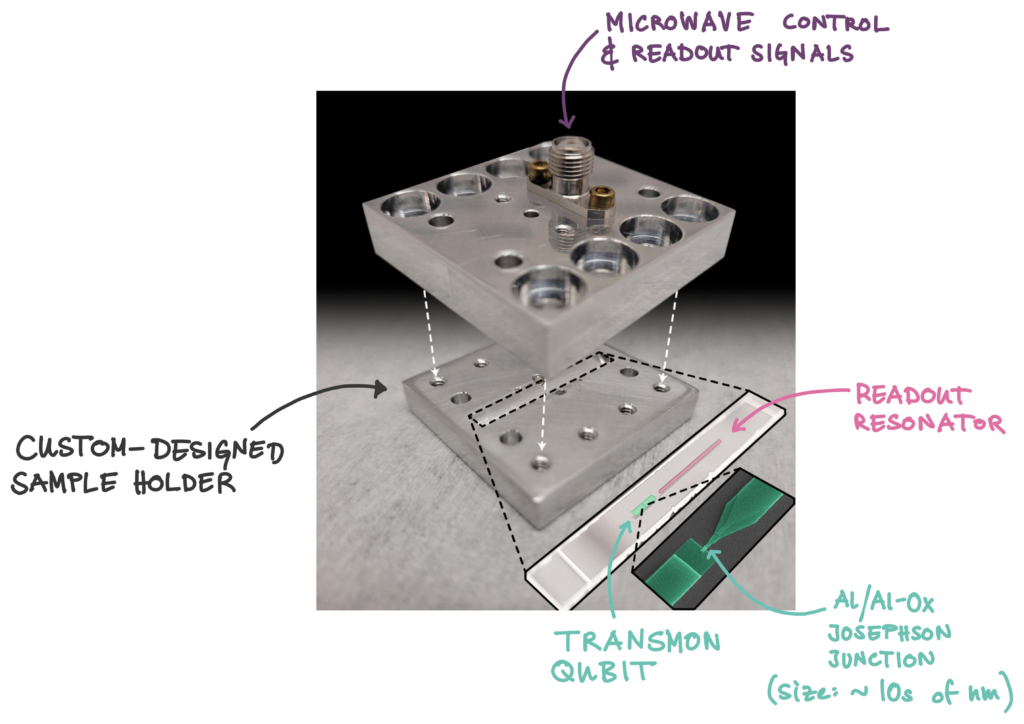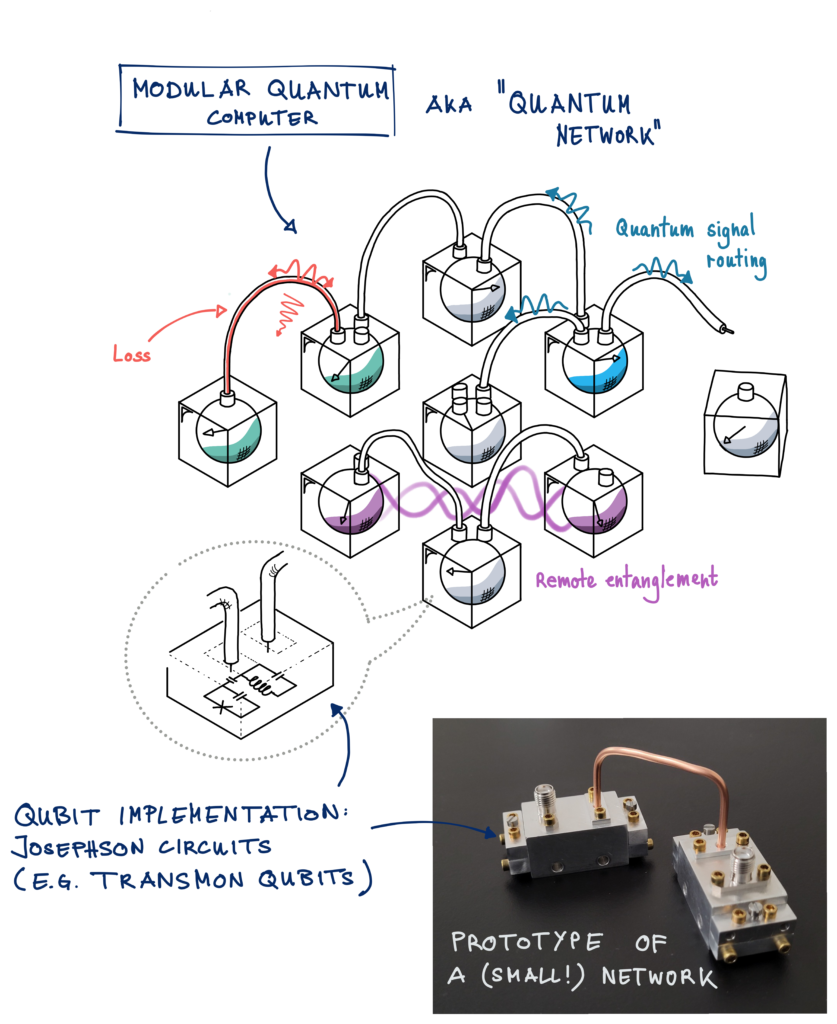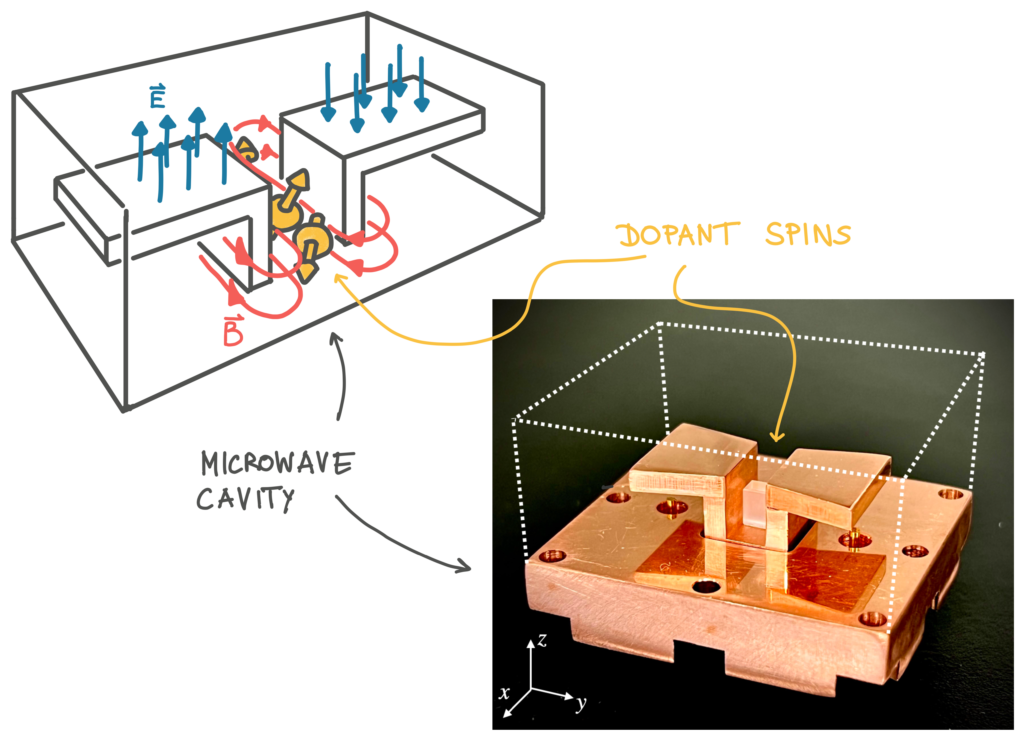Here is a brief overview of our main research themes. More will come as the lab grows.
Superconducting quantum devices and cavity QED
Our main experimental platforms are superconducting quantum circuits. Combining Josephson junctions (or other elements that provide low-loss nonlinearity) with microwave resonators in the microwave domain allows us to perform cavity QED experiments with electrical circuits (“circuit QED”). We use these systems to realize quantum memories and processors.

Open systems, noise-resilience, and modular quantum systems

We are interested in building quantum links between small quantum systems (such as superconducting qubits or cavities) that are located on different chips. These links can, for example, work through microwave photons that propagate through low-loss cables. We envision a way in which quantum systems can be assembled in a plug-and-play, “LEGO-like” fashion.
Connecting quantum processors in that way may be in an important engineering tool for scaling up to very large quantum systems. These experiments also allow us to study quantum error correction (and related concepts, such entanglement distillation) in the context of quantum communication protocols.
We are particularly interested in how the interactions in such systems can be tailored such that the entire circuit comes resilient against inevitable loss, for instance by realizing driven-dissipative state stabilization.
Hybrid Quantum Circuits
Combining superconducting circuits with other degrees of freedom (such as electron spin or charge in semiconductors, or trapped spins in insulating crystals) has the potential to realize more powerful circuits. For example, accessing spins could provide very long memory lifetimes.
